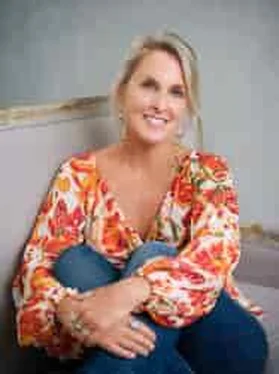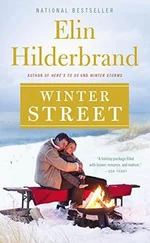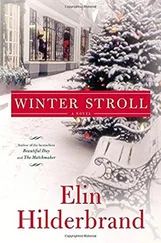If Mallory tells Coop this, will he understand? He may; he may not. She isn’t sure what kind of warped rulebook he uses when it comes to love. Or maybe she’s the one with the warped rulebook. Or maybe there is no rulebook.
Mallory has a ripcord. Will she pull it?
“I’ve lost a lot already this year,” she says. “I can’t give him up too.”
Yes, she is using the bald, gaping, awful fact of their parents’ death.
She might also say: If you hadn’t left your own bachelor party, this would never have happened.
“Okay,” Cooper says. “Send him down.”
Mallory breathes out a “Thank you.”
“Oh, and by the way, I’m dating someone new,” Cooper says. “Her name is Amy. She’s a psychologist. I can have her talk to Link, see if he’s okay.”
“He’s okay,” Mallory says. “Maybe you should have Amy see if you’re okay.” She cringes, wondering if it’s wise to crack a joke at Coop’s expense.
He laughs. “Amen,” he says.
Summer #23: 2015
What are we talking about in 2015? “Hotline Bling”; Stuart Scott; the Affordable Care Act; Paul Ryan; American Sniper; James Corden; the California drought; Hamilton; FIFA; Subway Jared; American Pharoah; Fitbit; Syria; Bill Cosby; San Bernardino; Ashley Madison; dabbing; Brian Williams; Selina, Amy, Gary, Dan, Jonah, and Mike; “Love Wins.”
Ursula still reads four newspapers every morning, though she has added the Skimm —and, on Fridays, Leland’s Letter . The Dirty Dozen feature on her has been viewed over two million times, but it’s not the number of people who have seen it that matters. It’s the kind of people.
On the negative side, it turns out that A. J. Renninger reads Leland’s Letter . She publicly criticized Ursula for her comment about women supporting each other and becoming vested in one another’s success.
“The senator, whom I counted as a dear friend, didn’t offer any help while I was running for mayor,” she said in a statement to Politico . “And I believe that’s because she didn’t want to view me as the most powerful woman in this city.”
Ursula had nearly called AJ then and there to set the record straight: She hadn’t supported or endorsed AJ because she didn’t believe AJ would be the best mayor. That AJ had won anyway came as no surprise; her fund-raising efforts were so impressive that Ursula was sure that she promised kickbacks and favors to special interests. Ursula didn’t attend the inaugural party because she had “other plans”—she’d worked late, gotten on the treadmill, and had cereal for dinner.
On the positive side, it turns out that the features editor of Vogue reads Leland’s Letter, and she offers Ursula a profile, which is published in the 2015 spring fashion issue. Ursula models power suits by Carolina Herrera, Stella McCartney, and Tracy Reese. The photographs are probably more enticing than the article, though it’s a substantive piece, and at the end the writer, Rachel Weisberg, asks Ursula if she’s planning on running for president.
Ursula says, “I’m not ready yet, but I wouldn’t rule it out for the future.”
This statement sets off a string of firecrackers. In a moment of extreme hubris, Ursula showed the article to her daughter, Bess. Bess is fourteen, a freshman at Sidwell Friends, and she has very much come into her own. She plays volleyball and the flute; she reads incessantly about social injustice. The novels she likes best feature marginalized adolescents from third-world countries. Are you walking across Africa with only one red pencil? Then Bess McCloud wants to read your story. Ursula secretly loves how passionate and devoted Bess is to inclusivity and diversity, even though Bess has started going to the mat against some of Ursula’s own policies. Bess, like so many young people, is a bleeding-heart liberal.
Ursula thought Bess might like to see the Vogue article because Ursula makes her position on certain sensitive issues clear. Ursula wants to pass legislation requiring universal background checks for gun purchases; this simple measure will do wonders, she believes, in keeping assault rifles and bump stocks out of the hands of maniacs, especially underage maniacs. She thinks health care should remain privatized, and she’s determined to tackle prescription-drug costs. She has a healthy LGBTQA agenda that protects rights for civilians and military personnel. Ursula is an “independent,” a “centrist,” a “political Switzerland,” but she wants Bess to see what that means, detailed in glossy-paged black-and-white.
However, the next morning when Bess comes into the kitchen, where Jake is making her omelet as usual and Ursula is on her laptop, skimming the South Bend Tribune —stormwater drainage issues are on the front page, again —she says, “So. You’re running for president?”
Jake spins around, spatula in hand. “What?”
Later that day, Ursula’s mother, Lynette, calls. Whereas Bess and Jake were both visibly upset about the idea of Ursula running for president, Lynette is elated. “You know your father predicted this when you were seven years old, glued to the Watergate trial. You knew what impeachment was before you knew how to ride a bicycle. I told the girls over lunch at the University Club today and they’re all going to vote for you.”
Great, Ursula thinks. That’s five people.
“I didn’t announce that I was running for president,” Ursula says to her mother, the same thing she said to Bess, to Jake. “I said I wouldn’t rule it out. And I promise that when I do announce, you will not find out from Vogue magazine. We will have discussed it thoroughly first.”
Jake and Bess had seemed skeptical about this answer; Lynette, disappointed.
Ursula reads Leland’s Letter now because she’s grateful—the overwhelming response to the Dirty Dozen column flipped a switch and Ursula has become intriguing (and maybe even inspiring) to people outside the Beltway—but also because Ursula enjoys it. Leland’s Letter is smart. There are articles about sex and relationships, books, art, music, sports, movies and TV, food and wine, travel. It’s one-stop shopping aimed at American women who want to read about more than just fashion, beauty, and home decorating. Ursula reads a terrific interview with the eighty-year-old poet Mary Oliver; she reads about the French entrepreneurs who rehabilitated the reputation of rosé; she reads about Berthe Morisot’s place among the other (all-male) Impressionist painters in 1890s Paris.
Every single article is fascinating, exhaustively researched, and brilliantly written. Frankly, Ursula enjoys Leland’s Letter more than the Washington Post and the Times put together.
Ursula spends the first two weeks of August in South Haven, Michigan, visiting her mother. Lynette de Gournsey sold the big house in South Bend and bought a condo on St. Joe’s River and this beautiful vacation home on Lake Michigan. Ursula is sitting in an Adirondack chair on her mother’s expansive, shady lawn on a bluff overlooking the lake as she opens Leland’s Letter on her laptop. Jake has taken Bess to the Golden Brown bakery for “breakfast” (meaning cookies) and her mother has a “committee meeting” (meaning mimosas with her best friends, Sue and Melissa). The lead article in Leland’s Letter this week is titled “Same Time Next Year: Can It Save Modern Marriage?”
Ursula clicks on it eagerly. She would love to know how to save modern marriage. If marriage is an “ebb and flow,” then she and Jake are in a long ebb, or possibly a permanent, stagnant swamp. This article was written by Leland Gladstone herself. Leland curates and edits the blog, but she doesn’t do any writing herself. Except, now, this.
Читать дальше












